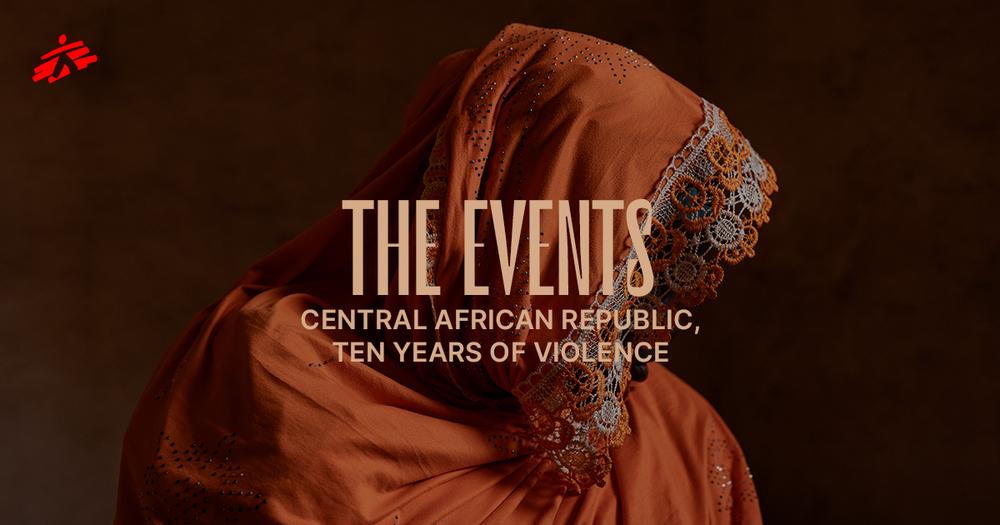Ten years after the start of the third civil war in the Central African Republic, Médecins Sans Frontières teamed up with photographer Adrienne Surprenant to meet Central African families and try to capture the consequences of these years of violence. By way of 15 first-hand accounts collected in Bangui and Carnot, the photographic and audio documentary "The Events" highlights the immense destruction within families and the marks left on their memories and their homes.
This is the story of a country bled dry and of the people who live there, of their family trajectories hit by “the events”, the repeated extreme violence sweeping across the Central African Republic. It is the story, among others, of Joseph, whose son was murdered on Christmas Eve; of Tatiana, who had to flee her home when she was at full term in her pregnancy; of Louise, who underwent an amputation following a gunshot wound; and of Louison, traumatized by the death of a man he tried in vain to save. Stories of families caught up in violence and of their members who are born, adapt, leave, survive and form a family.
In March 2013, rebel groups which had formed in the north of the country and united in a coalition, the Seleka, took power in Bangui. This third civil war that was starting turned the daily life of thousands of families into one of fear and struggle for survival.
Watch and listen to "The Events"
Seleka looting and atrocities soon led to deadly reprisals by Anti-balaka militias, self-defence committees made up of villagers and former soldiers, while UN peacekeeping forces and French troops were deployed. In Bangui and in the west of the country, a section of the population who were Muslims, ethnic Fulani or people assimilated to the routed Seleka fighters, was targeted: they were hemmed in, hunted down, killed and forced into exile.
In such circumstances, where can you shelter your family? How can you adapt and continue to be a family in the middle of a war? And how can you rebuild in moments of respite?
Over the past ten years, both the acts of violence and political alliances have changed in the course of the upheavals experienced by the Central African Republic. The military counter-offensive by the Central African government, supported by Russian allies, has allowed the state to regain control of the country's main cities and roads. Driven out to the periphery and weakened, the armed groups are nevertheless still capable of inflicting harm, and both sides are regularly accused of atrocities.
In 2023, the Médecins Sans Frontières teams in the country comprise nearly 3,000 people, the vast majority of them Central African. They provide numerous medical services such as paediatrics, trauma surgery and HIV/AIDS care. Every year, around 900,000 consultations are carried out via these projects, in partnership with the health authorities.
